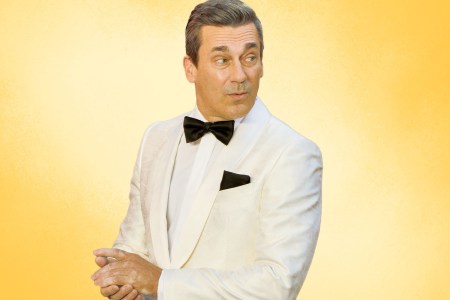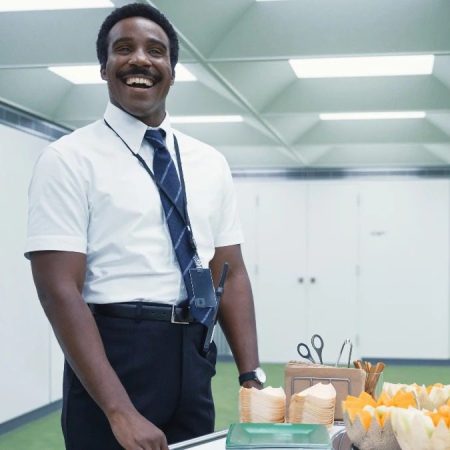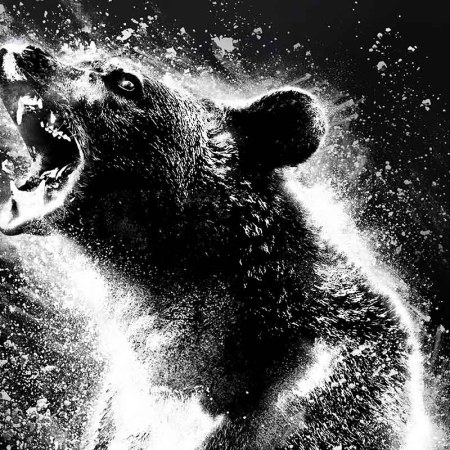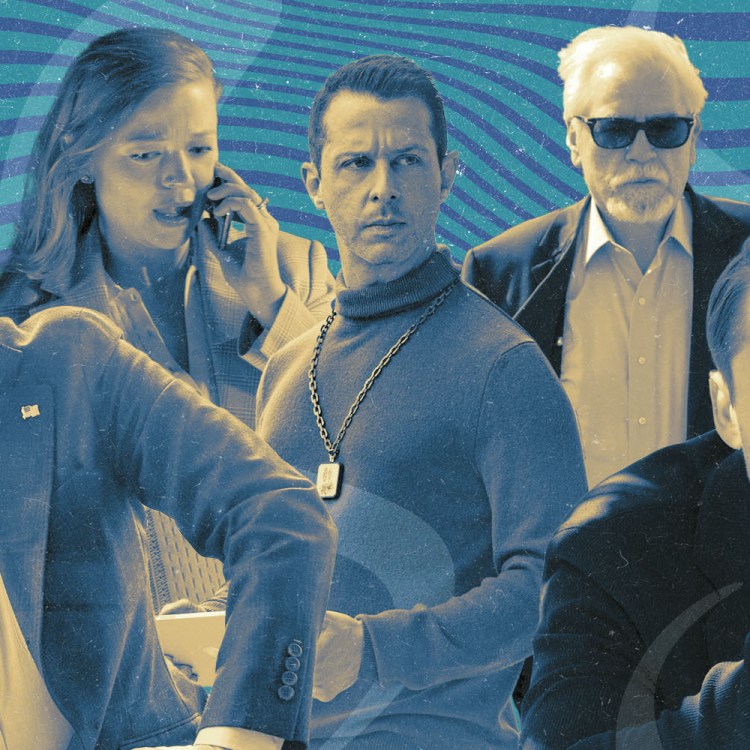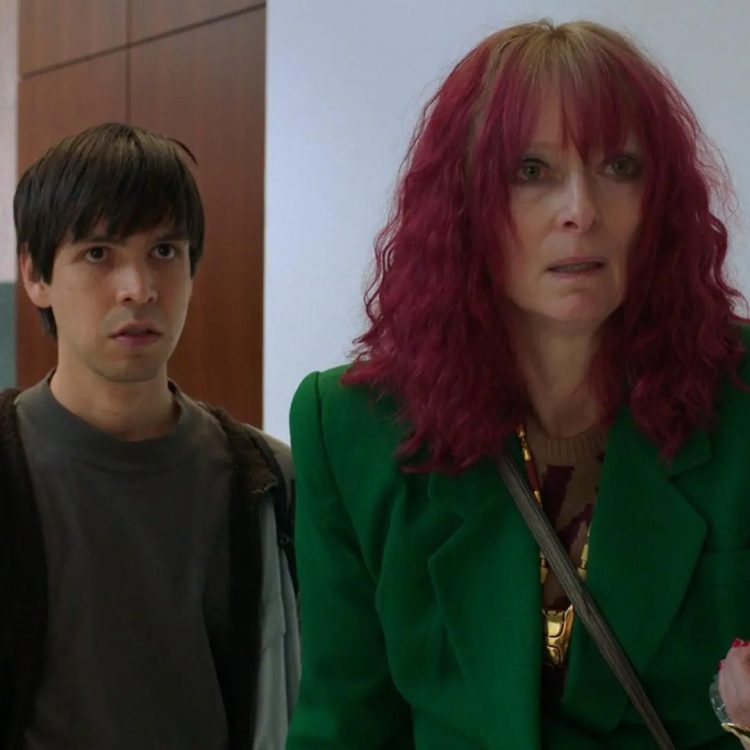We all know what makes a great movie star. The best leading men and women must possess certain qualities to make it to the A-list: glamour, charisma, a certain gravitas to make them feel worthy of the 45-foot screens their faces are splashed across. (Of course, acting talent doesn’t hurt, either.) The qualities of a great TV star, however, are a little less cut and dry. Is versatility most important? Longevity? Is an ability to disappear into dozens of characters more admirable than being able to craft one iconic one?
There’s a difference between a great TV performance and a great TV performer; whether you’re on a network sitcom or a prestige drama, you’ve got to be able to keep viewers engaged and entertained for weeks, months, even years at a time, and being able to do so with more than one project is easier said than done. Julia Louis-Dreyfus was able to shake off the Seinfeld curse with an all-time great showing on Veep, but she’s an exception to the rule: those who are lucky enough to star on a long-running, beloved TV series are often also doomed to live in its shadow forever. The best TV performers aren’t necessarily the brightest stars — they’re the journeymen, the ones who’ll keep grinding along for as long as we’re willing to keep tuning in. The home-run hitters eventually either flame out or graduate to the big screen; to have a truly successful TV career, you need to be a utility player.
That’s why there’s no one better suited to the medium than Adam Scott. Since he first graced screens as a teenaged bully on Boy Meets World in 1994, he’s been steadily checking off TV accomplishments like he’s a Boy Scout collecting merit badges. With his breakout role as washed-up actor/catering-company bartender Henry Pollard on Party Down (which he’s reprising on the unjustly canceled show’s highly anticipated revival starting today), he had a cool, cult favorite whose small-but-fiercely-devoted audience eventually expanded as it found a second life on streaming platforms. With his turn as Ben Wyatt, Leslie Knope’s love interest and eventual husband, on Parks and Recreation, he added a lengthy run on an almost universally beloved network sitcom to his resume. HBO’s Big Little Lies, where he stole scenes opposite Reese Witherspoon, was his buzzy limited series. And of course, most recently, his dramatic turn as Mark S. on Apple TV’s mysterious Severance earned him Emmy and Golden Globe nominations.
He can play cartoonish assholes (a smarmy agent on Eastbound & Down, a literal demon on The Good Place) just as adeptly as he can make us root for his sweet, beleaguered everyman characters. On more than one occasion, he has joined a series in the midst of its run and fit right in; most Parks and Rec fans now barely even acknowledge its first two seasons because he hadn’t yet shown up, and when scheduling conflicts prevented Bradley Cooper from participating in Netflix’s Wet Hot American Summer: Ten Years Later, Scott took over his role without missing a beat. (One little joke about Ben getting a nose job to correct his deviated septum, and it was off to the races.) Being a part of those big ensemble casts also allowed him to indulge his goofiest impulses with four installments of The Greatest Event in Television History, which saw him and some of his most frequent collaborators starring in hilariously accurate shot-for-shot remakes of the cheesy opening credits to 1980s schlock like Hart to Hart and Bosom Buddies.
In other words, there doesn’t appear to be any type of TV show he isn’t well-suited to. (He even briefly hosted a game show.) He’s equally skilled at comedy and drama, but what really sets him apart is his ability to blend the two together. Party Down, for example, is one of the funniest shows of the 21st century, but at its core, it’s also a tragedy. After all, it’s a show about dead dreams; what’s sadder than a group of Los Angeles creatives forced to watch the lives they imagined for themselves from the outside looking in as they endure all the humiliations of the service-industry gig they took to pay the bills? It’s not that they’re all hapless losers — Casey (Lizzy Caplan), for one, is a talented-enough comedian to get cast in a Judd Apatow movie, but not to avoid the eventual indignity of being edited out of the final cut. But they’ve all chosen to pursue careers in particularly harsh industries, and we know just as well as they do that none of them stand much of a chance of hitting it big. At the center of it all, of course, is Scott’s Henry. The only thing more devastating than the way he resigns himself to a life serving drinks to obnoxious rich people is the pain in his eyes when he’s made to recite the catchphrase from a popular beer commercial he starred in ages ago.
Let Jon Hamm Be an A-List Movie Star, You Cowards
Post-“Mad Men,” Hamm has failed to become a Hollywood leading man. “Confess, Fletch” should have changed that.Parks and Recreation was a far less cynical show than Party Down — in fact, some might argue its later seasons were a little too saccharine — but even with a character like Ben Wyatt, Scott invites us to find the humor in failure and despair. Yes, he eventually falls in love with the woman of his dreams and marries her, but when Ben first arrives in Pawnee, Indiana, he’s still living with the shame of being elected mayor of his hometown in Minnesota at the age of 18 only to be impeached two months later for bankrupting the city. (Like Henry, he got an early taste of success only to watch it slip through his fingertips.) Eventually, by the end of the series, he achieves his political dreams and gets elected to Congress, but not before several seasons of false starts and setbacks. It’s no coincidence that one of his character’s most memorable, frequently meme’d lines — delivered during a period of unemployment where he’s sunken deep into a claymation hobby — is a not-so-convincing “Do you think a depressed person could make this?”
His role as Mark on Severance is his bleakest yet, but even when he’s playing a man whose consciousness has been separated between his work life at the mysterious Lumon Industries and his personal life where he’s mourning the death of his wife, Scott brings us some unexpected layers. Yes, Severance is a dark psychological thriller, but at times it feels like a workplace comedy. Sure, he and his colleagues are trapped and being manipulated by an evil corporation that possesses the ability to control their memories, but is Mark’s flirty office banter with Helly really any different from the way Henry and Casey would crack jokes with each other at work on Party Down?
Why, then, despite such an impressive, varied career, does Scott still somehow feel underrated? Why do we laugh knowingly when the Bosom Buddies episode of The Greatest Event in Television History introduces its cast as “bonafide movie star Paul Rudd and ex-smoker Adam Scott”? He’s not flashy, and two of his most beloved characters serve as the closest thing to a straight man on their respective shows, reacting to the broader, more absurd hijinks occurring around them. To convincingly play an everyman, you’ve got to be an everyman to a certain extent.
Ultimately, all of Scott’s best characters are men who aren’t currently where they feel they’re supposed to be, whether that’s due to their own mediocrity, some cruel twist of fate or the medical procedure that split their brain in two and imprisoned them in a creepy office building. We see ourselves in them — who among us can’t relate to that feeling of untapped potential or a general sense that life hasn’t unfolded exactly how we expected it to? — and we root for their circumstances to change. Adam Scott may not be a superstar, but he’s managed to carve out one of the most fascinating paths in recent TV history for himself, and in doing so, he’s wound up exactly where he belongs.
This article was featured in the InsideHook newsletter. Sign up now.

